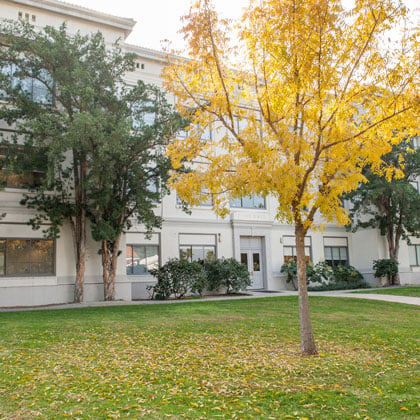Find us on Campus

Duke Hall

A degree in economics will equip you with a deep understanding of how economies function and the principles governing economic behavior. Our Bachelor of Arts in Economics is designed to be open and flexible, allowing you to complement economics with studies in data science, public policy, business, and other fields.
We train students with skills necessary for the advancement of economic knowledge, which best equips them for success in their future professions or graduate studies. Economics research uses empirical data, theory, econometrics, and abstract modeling to analyze human behavior, relationships, and institutions. Our coursework introduces students to these multiple approaches for analyzing micro- and macro-economic theory, market structure, economic development, and social policies while incorporating the historical, political, and cultural aspects of the field. Students explore economic issues of distribution, efficiency, and equity that are relevant to their lives as global citizens and professionals.
To view specific classes, program requirements, and coursework information, visit the current university catalog.
Complete ALL of the following Courses:
MATH111 (or POLI202 or CDIS208) should be taken prior to the junior year and preferably during the sophomore year.
Complete ALL of the following Courses:
Complete at least 3 courses in the following Course Sets:
At least three elective courses in Economics (11-12 credits). At most two of these may be at the 200-level. At most one elective may be a course offered by another program and cross-listed with Economics. May Term courses (3 credits) in Economics or courses offered by another program and cross-listed with Economics qualify as elective courses.
The economics minor will help you develop skills that can be used in a breadth of education and career fields. You'll develop basic expertise in the field by learning foundations in statistical analysis and methods, theory, and problem-solving, as they relate to economic principles.
MATH111 (or POLI202 or CDIS208) should be taken prior to the junior year and preferably during the sophomore year.
Complete at least 2 courses in the following course sets:
Two elective courses in Economics at the 200-level or above. At most one of these may be at the 200-level. At most one elective may be a course offered by another program and cross-listed with Economics. May Term courses (3 credits) in Economics or courses offered by another program and cross-listed with Economics qualify as elective courses.
Early Action 1: November 1
Early Action 2: December 1
Regular Decision: January 15*

Duke Hall



At Redlands, our students’ success is at the heart of everything we do. We offer experiential learning opportunities, but our CORE Four initiative takes that commitment to a deeper, intentional level. More than a set of experiences, the CORE Four is a framework for transformation. Learn more about how students can prepare for their academic journey.
Every Redlands faculty member is an active practitioner in their field. The classes they teach emerge from their unique research and practices, and they’re passionate about what they’re sharing.




Get in touch with our admissions team.